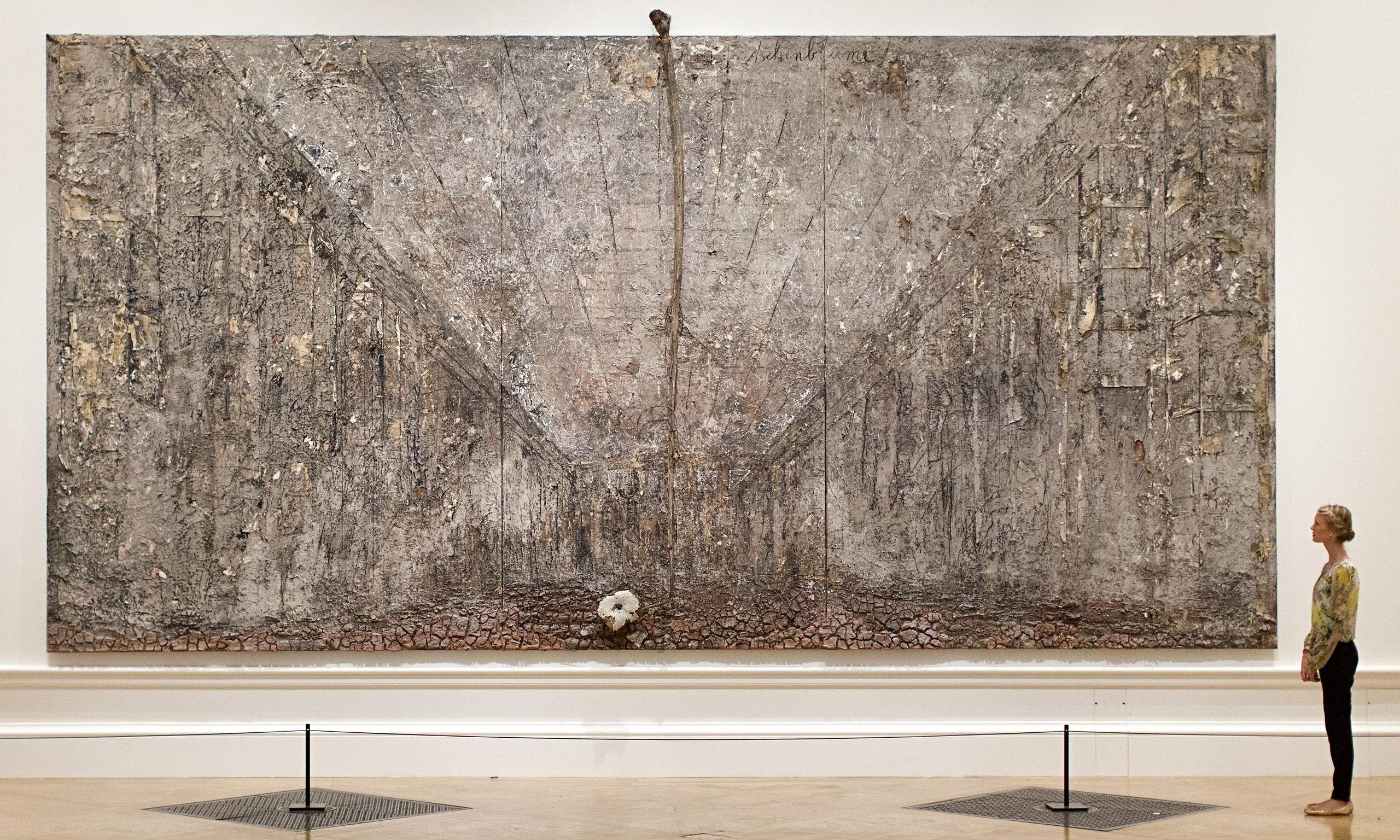Seagull Books recent published a volume of Anselm Kiefer’s notebooks covering the years 1998–99, the first of many volumes to come. At the LA Review of Books, Trinie Dalton mines the notebooks for what they reveal about Kiefer’s mode of thinking and his meticulous examination of the world:
The Notebooks remind me of one of my favorite stories, Nabokov’s “Signs and Symbols.” In it, the protagonist hopelessly (and a bit satirically) suffers from “referential mania,” reading too much into everything without a filter; he is overwhelmed by input from his surroundings. He is institutionalized, and his mania vanquishes him. Every event, object, and behavior has colossal symbolic value. I do not make this association as an insult to Kiefer; rather I admire him for being so self-aware that he constantly writes about tempering these tendencies. Some of the most trenchant passages reveal the intellectual processes he self-prescribes in attempt to tame his romanticism:
7/12/98
LONGING
You would like to cool this indeterminate, consuming, boundless emotion by thinking, and so you begin to question, although this questioning is equally boundless (it may well get caught in the same endless loops emotions do.) but the process of questioning and the resulting answers create a skeletal structure, which you can’t claim about this emotion. This ‘structure’ is merely provisional, of course, because there is no end to the questioning, a new question lurks behind every answer. In this play of questions and answers, you can’t make any real progress (can you make progress without emotions?). You don’t advance, as it were…
Most of his entries thematically mirror the preoccupations in his artwork, namely his adamant belief in emptiness as an infinite aquifer. These passages are my favorite because he shares with his readers how he generates ideas out of thin air; it’s a great inspiration to know that someone this prolific is not simply constantly blessed with genius. His discipline alone is humbling:
7/31/98
4:35pm
Sitting with my laptop, waiting. For what? What differentiates this waiting form waiting for a train or a flight? In both cases you wait until something arrives. In the case of waiting for something to write, the waiting is already a part of what is to be written down. Because something is already ‘at work’ while you wait, which could end the wait.
As he says, EMPTY SPACE IS NOT NOTHING, NOR IS IT A VESSEL.
Image via The Guardian.
